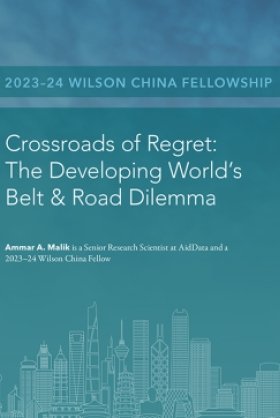Crossroads of Regret: The Developing World's Belt & Road Dilemma


China’s flagship global infrastructure development program has elicited polarized responses around the world, including buyer’s remorse in some recipient countries and anxiety in Western capitals. While some perceive it as a benevolent endeavor fostering economic growth and goodwill among recipients, others decry it as a “debt trap” leading to unsustainable projects and compromised sovereignty. This paper employs a rigorous, data-driven approach to examine the impact of the BRI on China's soft power, utilizing project-level data from AidData's Global Chinese Development Finance Dataset and public opinion surveys from the Gallup World Poll. The data analysis reveals that the BRI's influence on public sentiment is nuanced and varies significantly across regions and countries. While China has made notable gains in certain areas, it also faces challenges and setbacks in others. Analysts that apply one-size-fits-all approaches to assess China’s global engagements do it at their own peril. In fact, Beijing’s playbook is hardly static and has constantly evolved in response to changing on-the-ground realities. The case of Pakistan, the BRI’s flagship recipient and one of the largest in financing, underscores the complexities and potential pitfalls associated with China's engagement model. By choosing not to help BRI recipients improve public governance, Beijing is risking the viability of its own infrastructure projects. As BRI participants experience buyer’s remorse and Chinese financers pull away from new commitments, Washington must be prepared to fill the resulting voids through real-time, country-level analytics. But taking a page of China’s playbook, Washington should also carefully identify and prioritize countries where its limited resources would likely offer the greatest soft power gains. The conceptual framework and methodological approach introduced in this paper could be built upon and deployed by analysts to support a more nuanced, real-time, and context-specific approach to strategic competition.
Author

Chinese Development Finance Program, AidData

Kissinger Institute on China and the United States
The Kissinger Institute works to ensure that China policy serves American long-term interests and is founded in understanding of historical and cultural factors in bilateral relations and in accurate assessment of the aspirations of China’s government and people. Read more

Explore More
Browse Insights & Analysis
360° View of How Southeast Asia Can Attract More FDI in Chips and AI




